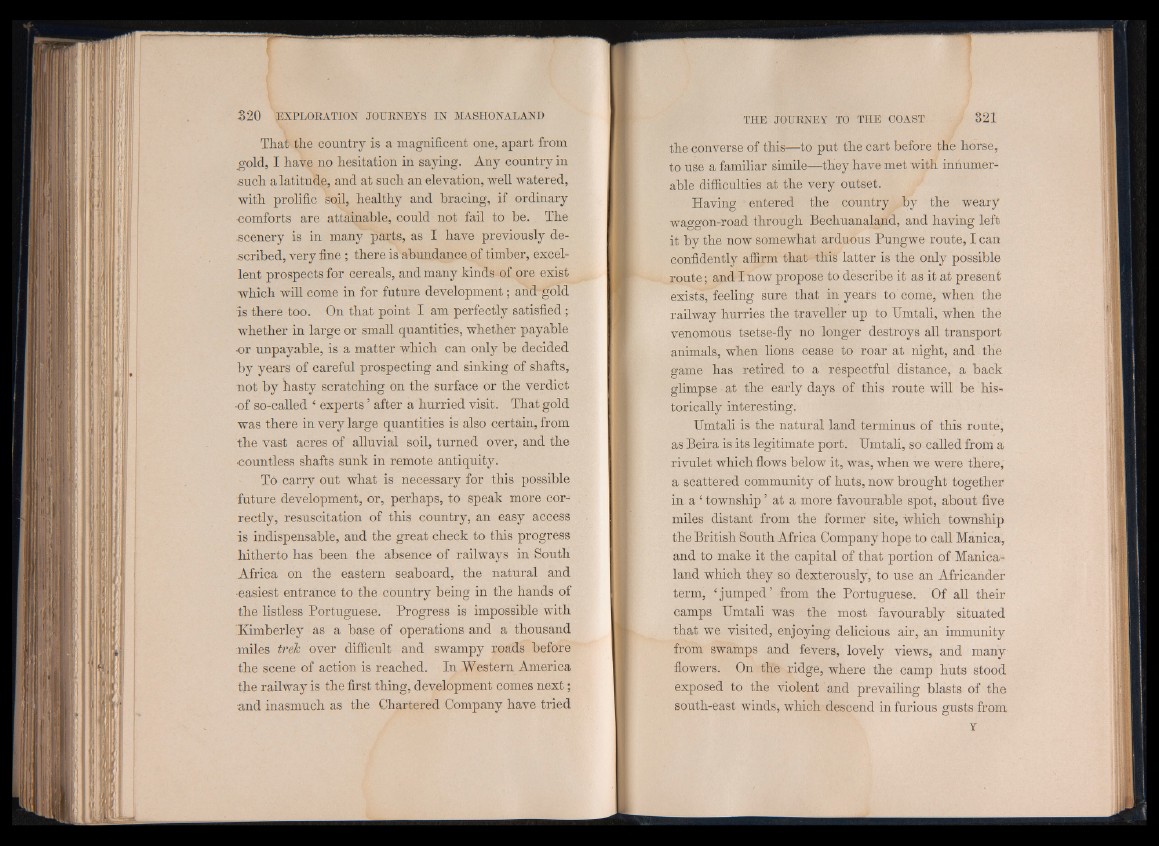
That the country is a magnificent one, apart from
gold, I have no hesitation in saying. Any country in
.such a latitude, and at such an elevation, well watered,
with prolific soil, healthy and bracing, if ordinary
■comforts are attainable, could not fail to be. The
-scenery is in many parts, as I have previously de-
.scribed, very fine ; there is abundance of timber, excellent
prospects for cereals, and many kinds of ore exist
which will come in for future development; and gold
is there too. On that point I am perfectly satisfied ;
whether in large or small quantities, whether payable
o r unpayable, is a matter which can only be decided
by years of careful prospecting and sinking of shafts,
not by hasty scratching on the surface or the verdict
o f so-called < experts ’ after a hurried visit. That gold
was there in very large quantities is also certain, from
the vast acres of alluvial soil, turned over, and the
•countless shafts sunk in remote antiquity.
Tó carry out what is necessary for this possible
future development, or, perhaps, to speak more correctly,
resuscitation of this country, an easy access
is indispensable, and the great check to this progress
hitherto has been the absence of railways in South
Africa on the eastern seaboard, the natural and
•easiest entrance to the country being in the hands of
the listless Portuguese. Progress is impossible with
.Kimberley as a base of operations and a thousand
miles trek over difficult and swampy roads before
the scene of action is reached. In Western America
the railway is the first thing, development comes next;
•and inasmuch as the Chartered Company have tried
the converse of this—to put the cart before the horse,
to use a familiar simile—they have met with innumerable
difficulties at the very outset.
Having '■ entered the country by the weary
waggon-road through Bechuanaland, and having left
it by the now somewhat arduous Pungwe route, I can
confidently affirm that this latter is the only possible
route; and I now propose to describe it as it at present
exists, feeling sure that in years to come, when the
railway hurries the traveller up to Umtali, when the
venomous tsetse-fly no longer destroys all transport
animals, when lions cease to roar at night, and the
game has retired to a respectful distance, a back
glimpse at the early days of this route will be historically
interesting.
Umtali is the natural land terminus of this route,
as Beira is its legitimate port. Umtali, so called from a
rivulet which flows below it, was, when we were there,
a scattered community of huts, now brought together
in a ‘ township ’ at a more favourable spot, about five
miles distant from the former site, which township
the British South Africa Company hope to call Manica,
and to make it the capital of that portion of Manica-
land which they so dexterously, to use an Africander
term, ‘jumped’ from the Portuguese. Of all their
camps Umtali was the most favourably situated
that we visited, enjoying delicious air, an immunity
from swamps and fevers, lovely views, and many
flowers. On the ridge, where the camp huts stood
exposed to the violent and prevailing blasts of the
south-east winds, which descend in furious gusts from